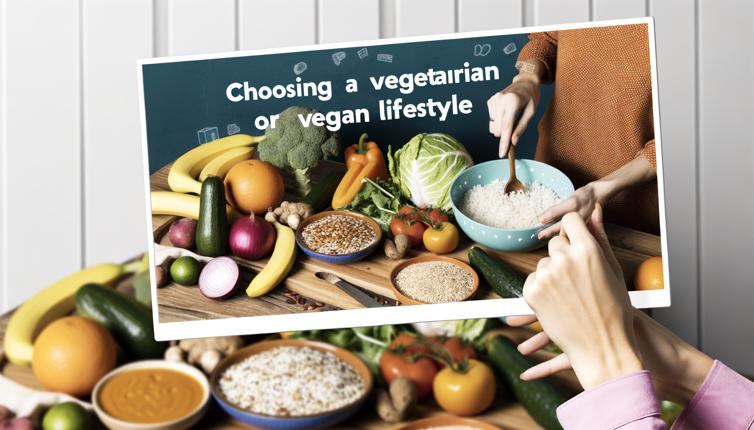Health Benefits
One of the main reasons people choose to adopt a vegetarian or vegan lifestyle is for the health benefits. Research has shown that plant-based diets can help reduce the risk of chronic diseases such as heart disease, diabetes, and certain types of cancer.,Vegetarian and vegan diets are typically high in fiber, vitamins, minerals, and antioxidants, which are all essential for maintaining good health. They are also generally lower in saturated fats and cholesterol compared to diets that include meat and dairy products.,It's important to note that a balanced vegetarian or vegan diet is necessary to ensure you get all the nutrients your body needs. This may require careful planning and possibly the supplementation of certain nutrients such as vitamin B12.
Environmental Impact
Another significant factor to consider when deciding on a vegetarian or vegan lifestyle is its impact on the environment. Animal agriculture is a major contributor to greenhouse gas emissions, deforestation, and water pollution.,Raising animals for food requires large amounts of land, water, and feed, contributing to deforestation and water scarcity. Additionally, the methane gas produced by livestock is a potent greenhouse gas that contributes to climate change.,By choosing a plant-based diet, you can reduce your carbon footprint and make a positive impact on the environment. Plant-based foods generally require fewer resources to produce and emit fewer greenhouse gases compared to animal products.
Ethical Considerations
For many individuals, the ethical treatment of animals is a significant factor in their decision to adopt a vegetarian or vegan lifestyle. Animal agriculture often involves practices that raise concerns about animal welfare.,By choosing to avoid meat, dairy, and other animal products, you can minimize your contribution to animal suffering. Plant-based diets provide a compassionate alternative that aligns with the principle of non-violence towards animals.,It's worth noting that there are various degrees of vegetarian and vegan lifestyles, ranging from lacto-ovo vegetarians who consume dairy and eggs to strict vegans who avoid all animal-derived products. You can choose a level of commitment that aligns with your values and beliefs.
Conclusion
Deciding on a vegetarian or vegan lifestyle involves careful consideration of the health benefits, environmental impact, and ethical considerations. It's essential to gather information, consult with healthcare professionals, and evaluate your personal values before making a decision. Remember that transitioning to a vegetarian or vegan lifestyle is a journey, and you can start by making small changes and gradually incorporating more plant-based foods into your diet.









